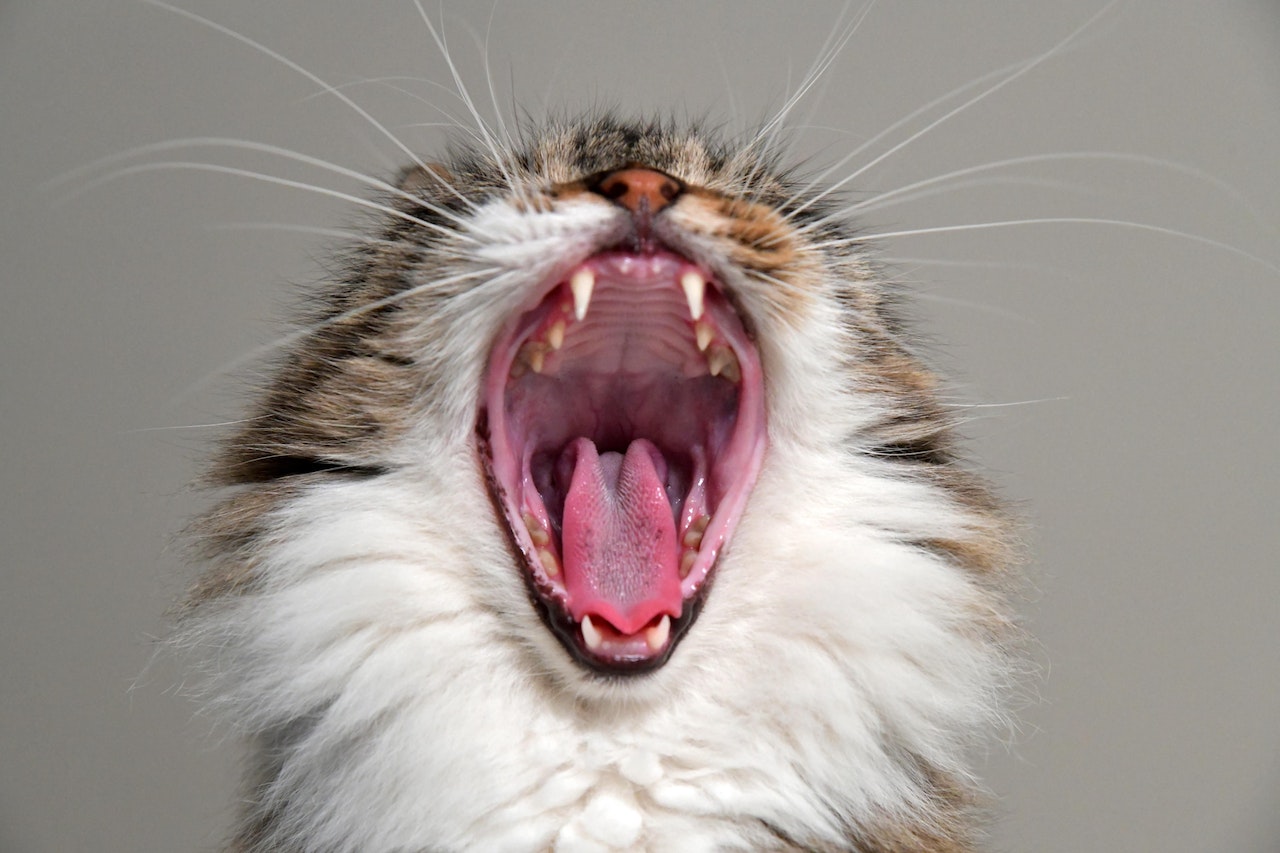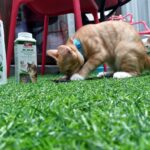Bad Breath in Cats; Halitosis, commonly known as bad breath, can occur in cats for various reasons. It is important to address halitosis in cats as it can indicate underlying health issues.
Here are some common causes and prevention methods for bad breath in cats:
- Dental Problems: Dental disease is one of the most common causes of halitosis in cats. Plaque buildup, tartar, gum disease, and tooth decay can all contribute to bad breath. Prevention involves regular dental care, such as brushing your cat’s teeth with cat-specific toothpaste, providing dental treats or toys, and scheduling routine dental cleanings with your veterinarian.
- Oral Infections: Infections in the mouth, such as gingivitis or stomatitis, can lead to halitosis. These conditions cause inflammation and bacterial overgrowth, resulting in bad breath. Prompt veterinary attention is necessary to diagnose and treat oral infections effectively.
- Diet: The food your cat eats can impact their breath. Poor-quality or inappropriate diets can cause gastrointestinal issues, leading to bad breath. Feeding your cat a balanced, high-quality cat food that meets their nutritional needs can help prevent halitosis.
- Foreign Objects or Injuries: Objects stuck in the mouth or injuries to the oral cavity can cause infections and produce foul odors. Inspect your cat’s mouth regularly for any signs of injury or foreign objects, and seek veterinary assistance if you notice anything unusual.
- Systemic Diseases: Certain systemic conditions, such as kidney disease, diabetes, or liver problems, can contribute to halitosis in cats. Treating and managing these underlying diseases is crucial for improving breath odor.
- Poor Hygiene: Inadequate grooming and hygiene can lead to a buildup of bacteria and food particles in the mouth, resulting in bad breath. Regular grooming, including brushing your cat’s fur and ensuring their face and mouth are clean, can help prevent halitosis.
- Mouth Breathing: Cats that breathe through their mouths due to nasal congestion or respiratory issues may develop halitosis. Identifying and addressing the underlying cause of mouth breathing is essential to alleviate bad breath.
To prevent or reduce halitosis in cats, it’s crucial to maintain good oral hygiene, provide a balanced diet, and monitor their overall health. Regular Ducknet Veterinary Clinic check-ups are essential to identify and address any underlying medical conditions contributing to bad breath.







